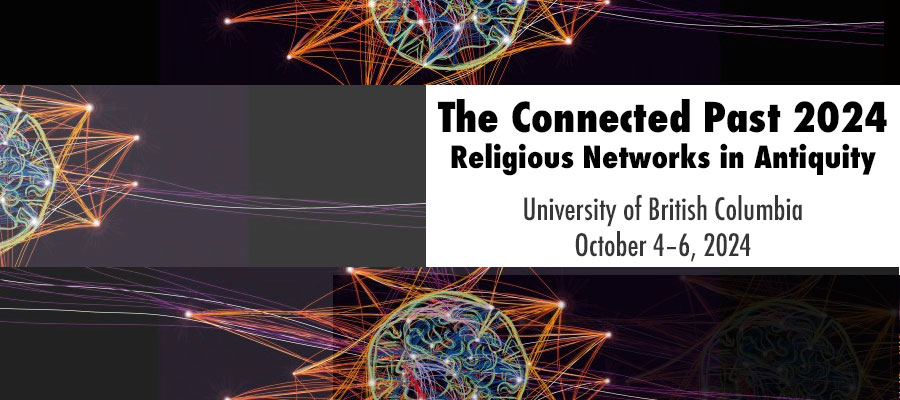The Connected Past (2024): Religious Networks in Antiquity, University of British Columbia, October 4–6, 2024
Network approaches are used by archaeologists and historians as tools to model relational ties between individuals and groups in the past as key predictors of historical outcomes. The growing uptake of these approaches comes in an era recently dubbed the “Third Science Revolution” (Kristiansen 2014), where the advancement of Big Data and computational techniques have revolutionized the types and amounts of information at our fingertips and our means of analyzing and visualizing its patterns. This workshop and conference aim to build bridges between often divergent disciplinary skillsets: the quantitative and computational side of network analysis and the qualitative questions and explanations that undergird network theory alongside historical and archaeological work.
A special area of focus for the conference will be the application of network perspectives to the emergence and spread of religious beliefs and practices, positioning these phenomena as deeply intertwined with the human and material connections that comprised the ancient world. Religion has often been regarded as both an intensely local and intensely transcultural force for ancient communities. Now, at the digital frontiers of the twenty-first century, the resurgent interests in large-scale questions on human development have opened up new opportunities to study religion from relational and quantitative perspectives combined with deep qualitative and historical approaches developed in the humanities.
The organizing committee, comprised of The Connected Past, The Society for Ancient Mediterranean Religions, and researchers at The University of British Columbia, invites scholars to submit abstracts for 20-minute papers that explore the intersections of network science, social network analysis, network theory, archaeology, and ancient religions. While this conference will focus on network perspectives as applied to ancient religious beliefs and practices, we also welcome researchers whose work more broadly interrogates methodologies for applying network approaches to the study of the past, as well as those who consider network science techniques alongside traditional humanities pedagogy.
Possible themes:
- Modeling religious diffusions
- Networks and religious identities
- Networks and collective memory
- Networking myth
- Religion, networks, and social complexity
- Networks and materiality
- Communities of (religious) practice
- Knowledge networks and religious practice
- Networks, rituals, and power
- Network science techniques and humanities pedagogy
An optional workshop on network science will take place prior to the conference on UBC Vancouver Campus, Oct. 2nd-3rd 2024. Schedule and registration TBA. Workshop seats will be limited.
